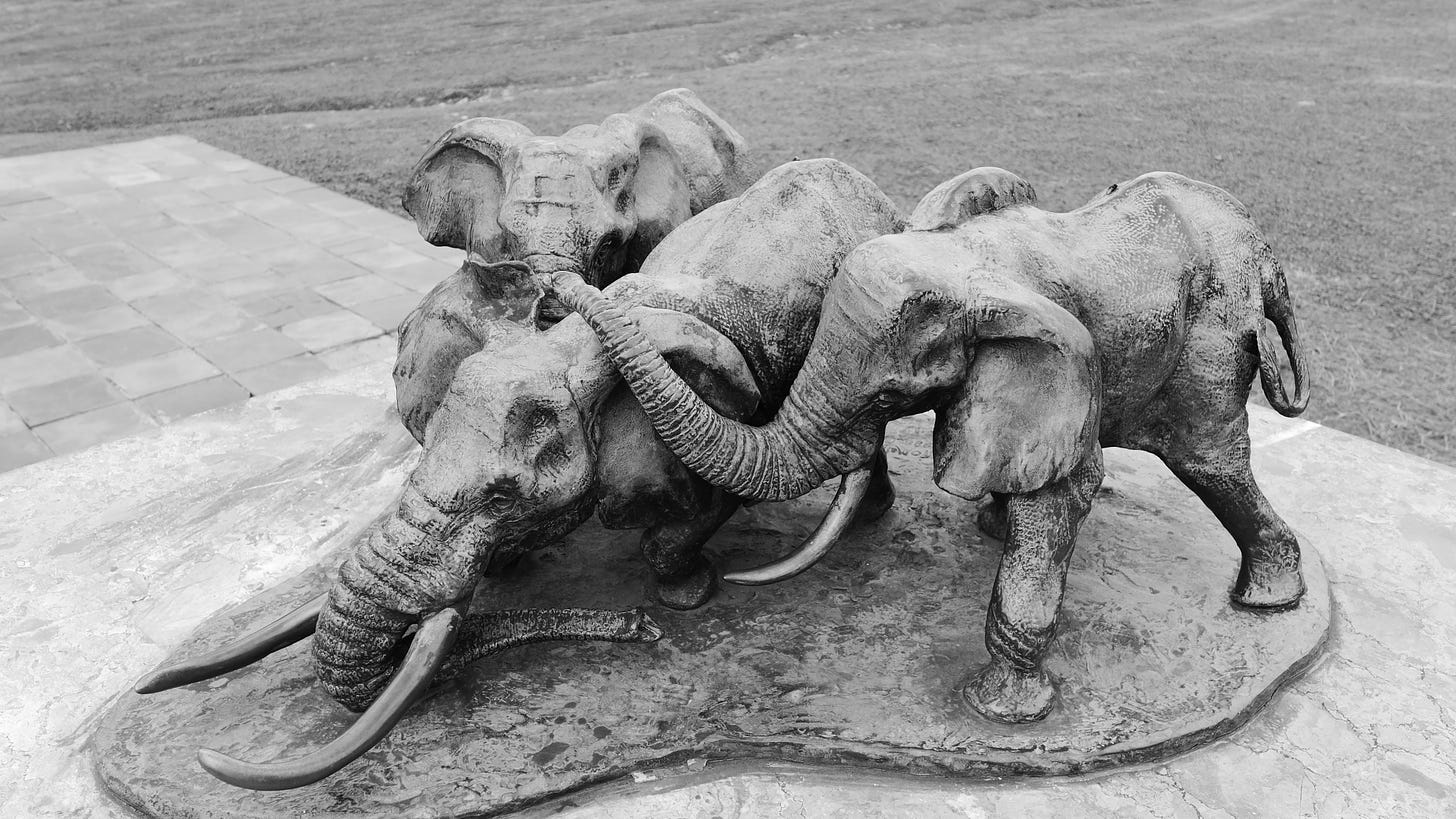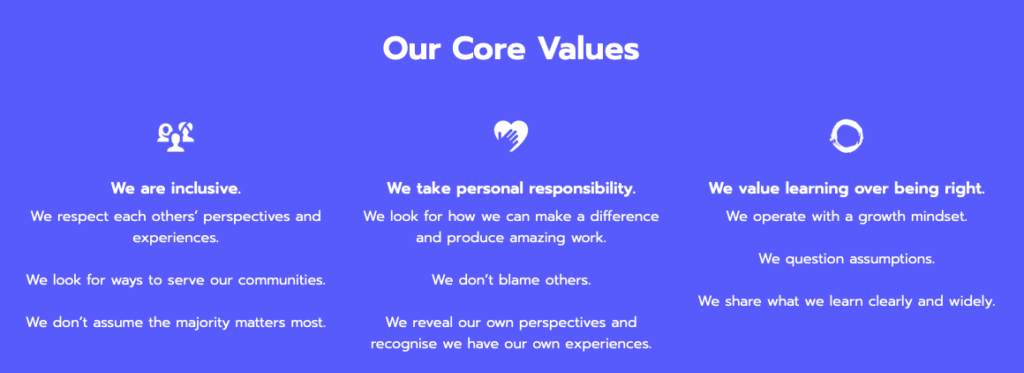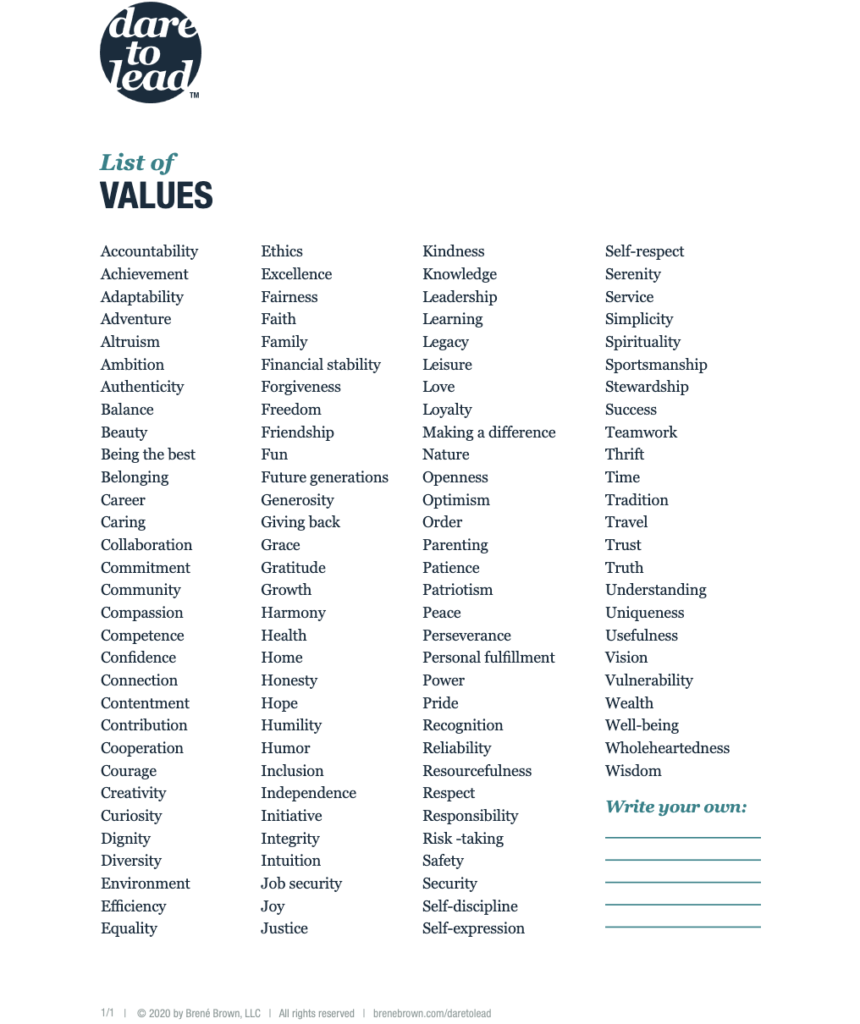Do my motives matter?
“I saw the Emperor – this soul of the world – go out from the city to survey his reign; it is a truly wonderful sensation to see such an individual, who, concentrating on one point while seated on a horse, stretches over the world and dominates it.”
—Georg Wilhelm Friedrich Hegel
“Faith in the creative process, in the dynamics of emergence, in the values and purposes that transcend past achievements and past forms, is the precondition of all further growth.”
—Lewis Mumford

Is one of these statements more true?
- To be successful I require a force of will and to be a strong leader.
- If I trust myself and continue to take action in alignment with purpose, the right things will happen.
Are “great leaders” who do important things examples of success by force of will or are some people just in the right place at the right time? Is force of will a kind of strategy that the system of dominance rewards? Or am I caught in a tautology? We make histories in hindsight.
I have a desire for something to exist in the world, in this case a technology, or really merely an app, but something that supports the purpose of cultivating containers of belonging.
In my current snarl, as much as I want to develop this tech, and do possess the non-technical skills to drive the project forward, I don’t want to invest many years building on a foundation that will ultimately be antithetical to the purpose. And so I keep looking for a container that will allow for people-oriented, thoughtful, and emergent software to be built by people who care more about impact than a now or future payday.
Does this mean I am waiting for permission or searching for the cracks to slip through?
Game B+
Over many years in the startup world, I learned how “the game” is typically played and while it’s not a game “people like me” win at often, it does have a playbook of sorts, and it does involve a set of skills I spent many years developing. There’s a culture around tech startups that is very winner-take-all, that depends on the idea that you need to make moats, guard your IP, and other adversarial concepts. There are countless conversations in this world where compromises to growth in service of community, employee, or climate health are seen as painfully naive. Anything short of hyperscale would be, ultimately, a failure. You matter when you’re the king of the world and other people challenge you to cage fights.
“Successful” tech startups founders are, for the most part, a very specific band of people who are funded and enabled to orient around experimentation and learning. The people in question are pedigreed in various ways, and also deeply committed to the ‘force of will’ hypothesis. It’s hard not to look around at popular tech companies and see patterns that look much like evidence of the success of that strategy, even though of course the entire pool of VC-backed tech looks much the same on paper and there are far more failures among them than successes. (Not to mention the large percentage of such tech companies that are still unprofitable and have engaged in growth tactics that have had negative consequences in various ways for many other people).
But you know what? That’s all irrelevant.
I am not choosing emergence and slow progress because my body falls into a category that venture investors don’t associate with tech founder-ness. My discomfort around taking action doesn’t actually come from anyone else’s judgement. There’s an uncertainty making new things generally produces, no matter whether I think I am making it happen or not.
Driving vs. shepherding
There is something about “I need to make things happen” that feels like it comes from fear not love, that feels like forcing a solution. It indicates I have something to prove instead of something that I’m called to serve.
I am naturally good at getting things to happen. I don’t need to fear that I’ll be lying in bed eating bonbons all day, but what I seem to fear most is a lack of consequence. Somehow, if I figure out a strategy, I think, I can make an impact that matters. It’s a seductive idea that is completely orthogonal to everything I have a felt sense about.
There’s a little bit of this, “yeah, but can’t I just get what I want?” It’s hard to accept that I might not matter in some grand way, it’s hard to believe that just doing things as opportunities arise is enough, let alone believing that just being is enough.
I have to feel my fear and welcome it. Not a fear of doing things, the fear of not mattering. Being Napoleonic is not in my nature (despite accusations to the contrary when I direct someone to help with dinner cleanup). I get so much more joy from leading through listening, coordinating, and having a clear and uncompromising sense of purpose.
The Great
I might not be a person of greatness. That such people even exist and have the right to dominate is a narrative underlying our ideas about leaders.
“What we now regard as states turn out not to be a constant of history at all; not the result of a long evolutionary process that began in the Bronze Age, but rather a confluence of three political forms – sovereignty, administration and charismatic competition – that have different origins. Modern states are simply one way in which the three principles of domination happened to come together, but this time with a notion that the power of kings is held by an entity called ‘the people’ (or ‘the nation’), that bureaucracies exist for the benefit of said ‘people’, and in which a variation on old, aristocratic contests and prizes has come to be relabelled as ‘democracy’, most often in the form of national elections. There was nothing inevitable about it. If proof of that were required, we need only observe how much this particular arrangement is currently coming apart.”
—David Graeber and David Wengrow, The Dawn of Everything
We may at a time in history when it is becoming clear that we have to toss out the hero mythos and figure out how to be ordinary. To feel the small power of each of ourselves as integral parts of our collective humanity.
Maybe I am misinterpreting the options. There’s room for me to make space in myself for whatever I may be called to, without attachment to recognition. Perhaps the answer is: lead, but only in ways that serve, that allow more lights to shine, that emerge from what is necessary. I can honour my vision at the same time as I recognise I am seeing from a particular vista. I can’t actually design the future but I can choose a path through the brush.
Beyond ambition
I want to do something big, but why? It seems I don’t just want to be known, I want to be known in some very specific way: written into history. It makes me wonder what the hole is I am trying to fill. The little me who was told I was smart and special but also that there was something indefinite but wrong about me?
If I am a vessel for purpose, I may become impactful but I’ll be doing so in service, perhaps even despite my intentions. It’s easy to get hooked by the want to be acknowledged, to be acceptable, to be as good as, which somehow equates to being a figure in history.
At the same time, I don’t want my whole self, including exactly these kind of boring and embarrassing thoughts about my own insecurities, to be exposed.
Imagine we all could create a history of the world where we’re important and do meaningful things. Perhaps this, at its core, is the appeal of social media. Many billions of histories, protagonists all. It’s no wonder that influencer (or, ‘creator’) has become the most aspirational career for the youth. You can skip actually doing anything impactful and just get the attention, the sense of being important. Skip having to deal with the messiness of relationship and collaboration and go right to a follower count.
And look, no judgement. We’re talking about the fundamental aspects of human nature and a system where taking a cut of our extracted attention yields actual power and influence. (There’s an interesting sidebar here about how creators want to own the means of distribution, which might collapse into a whirlpool of recursion).
Fear itself
I don’t know how many times I will need to talk myself down from the idol-worship of achievement addiction. How many times I will have to grieve the hope that I can be saved by being called important. Maybe everyone has a Maypole they will spin around forever and this is mine. To matter, I have to put down what gets in the way of service, and in my case, it’s the fear of not mattering.
These tangles are useful. They give me a chance to revisit my motives. I am not stuck, I am not in an inertia. I’m on a path to building technology that supports our freedom, belonging, and responsibility. I believe there are amazing people who will come together and do work differently. I have a wealth of skills, experience, and intention to contribute. I’m not just thinking about things. I am acting, making, and progressing, if progress itself can be anything more than more capacity to feel my choices. And more and more, I can feel into how possible it is to create without it being about glory or redemption. I act and make because to do otherwise would leave me in dissonance or betrayal.
I am expanding my circles of collaboration, which fills me with delicious anticipation. It’s not only in my head even though sometimes I feel alone. Everyone matters. History offers no solace for us now.


